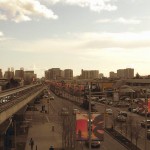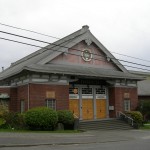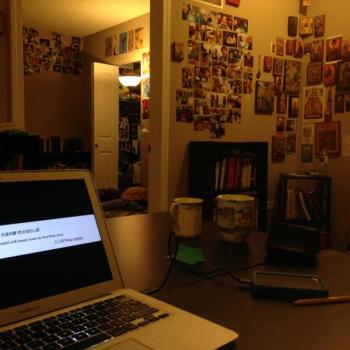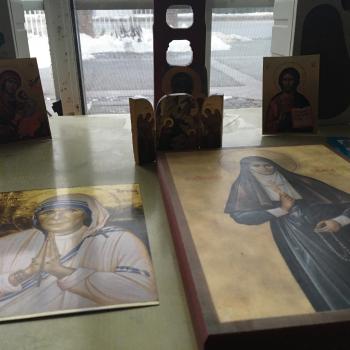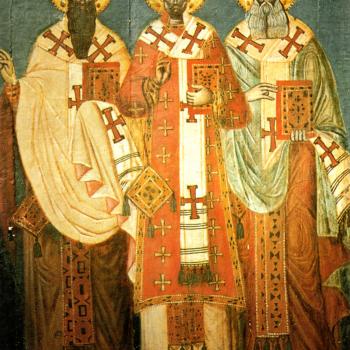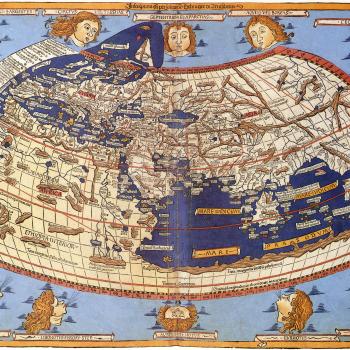This post is part of a series called Justin’s Big BC Politics Primer. The first installment can be found here. The second, which is an overview of the upcoming series, is here.
Hey, I just met you
And this is crazy
But here’s my number
So call me maybe.
One can already hear the complaints about whether children should be influenced by this sort of hook-up culture. If one listens closely, one can hear calls to action to protect the younger generation from this insidious erosion of family stability.
In fact, listen for the irony, and you can hear a concerned parent in the song. The lead-up to this chorus is: Where you think you’re going, baby? — the possible words of a concerned parent to a teen. The bridge reads: Before you came into my life, I missed you so bad…and you should know that. Imagine a parent saying that into a cell phone.Today’s post is about sex. But it isn’t about the whole craze in the Vancouver public sphere about why it’s hard to get a boyfriend/girlfriend/close friend in Vancouver.
It’s about parental rights politics. You know, like concerned parents. Parents who sing, ‘Where you think you’re going, baby?’
This parental rights/sex stuff seems to have become all-consuming in BC’s public sphere. As a Chinese Christian who studies Chinese Christians, I should know.
Because I am very unwilling to fall victim to the BC version of the private consensus (i.e. outed for imposing my private interests onto the public sphere), I will say front and center that my knowledge of BC politics is what feminist theorist Donna Harraway calls a ‘situated knowledge.’ All knowledges are situated from one vantage point or another, and the best thing to be about it is honest. I’m honest that I happen to be a very complicated and theologically/politically confusing Christian whose Chinese ethnicity has been subjected to way too many divergent Chinese communities’ influences. I’m also honest that I happen to know about all this stuff because I wrote a 644-page dissertation on Cantonese-speaking Protestants and their engagements with the public spheres of Vancouver, San Francisco, and Hong Kong.
You’ll forgive me, then, for situating my primer with Chinese Christian parental politics as the starting point. It’s how I came up with the idea of writing a primer in the first place.
In May, I was in the thick of my postdoc in Seattle when the local Vancouver correspondent for the South China Morning Post, Ian Young, called me up. He said that he needed an expert. Concerned parents, most of them Chinese Christians, had taken the Vancouver School Board by storm to contest the adoption of a transgender school policy. Led by Caucasian lawyer Cheryl Chang, these parents accused the school board of taking away parental rights because the policy said that the school didn’t have to inform their parents if they were using a trans student’s preferred name at school. They were also going to allow transwomen into men’s washrooms and transmen into women’s washrooms. Chang and her group of parents also demanded medical, scientific, and psychiatric evidence that this trans thing wasn’t just an undiagnosed form of mental illness to be treated.
I was fairly happy about the way that Young quoted me. I explained:
This is not really a debate about homophobia. It’s a debate about parental rights … and this has been the long-standing theme in these debates in Vancouver…Chinese Christians have this vision for a rational orderly society. A particular reading of the Bible may inform this, a particular reading of the Chinese classics may inform this. But at the heart of it, it’s about a rational orderly society, where parents are the primary educators for their children. What they are seeing instead with this kind of stuff [the board’s proposals] is that this is irrational and disorderly. That’s why there is such a strong pushback.
To boot, Young then cited my dissertation, which resulted in the thing getting downloaded over 700 times (to my surprise: one is usually told that a dissertation only matters to three people in the world).
Before long, I was contacted by some of these concerned parents who were a bit upset with me. I was contacted by people who endorsed the policy too, and they were upset for different reasons. For this post, though, I’ll focus on the concerned parents.
To be sure, not all of the concerned parents were upset with me; some even were delighted at what I had told Young because it articulated what they had been trying to articulate for quite some time. But others were not so thrilled. That’s because they saw themselves as locked in an epic battle with ‘the other side,’ and they told me that by talking about their tactics and strategies publicly (though I was at quite a loss to see what secrets I had actually given away), I was putting tools in the hands of the other side to use against them. By opposing this policy, these concerned parents saw themselves as working for the public good — opposing irrationality, calling for hard science, ensuring public safety in washrooms, reinforcing time-honoured gender norms. It was the other side, the Vancouver School Board and all the trans activists who had allegedly infiltrated it (my LGBTQ+ friends tell me a different story, of course), that was allegedly imposing their insidious agenda onto the public school system.
This was a story with which I was familiar. Since the late 1990s, concerned parents who happened to be Chinese and happened to be evangelical started secular organizations to combat what they saw as an erosion to parental rights. Some of these organizations were directly involved in partisan politics, mostly Reform/Canadian Alliance at first, and then merging with the Conservative Party of Canada and supporting the BC Liberals and the Non-Partisan Association in Vancouver. Some of these proliferated periodicals railing against these social shifts. While there was admittedly a lot of fairly nasty talk about the LGBTQ+ community in these publications (which led sometimes to some Chinese Christians dissociating from them), the real issue at its heart was parental rights, the right of parents to govern the education and formation of their children in their own private sphere. While this may seem like a moral ideology, there was an economic component to it as well: families that stay together can keep the money circulating within the family in a collective effort to resist falling into poverty. What was under siege, they told me, was their private family units: the public sphere — the government, the media, activist groups — were seeking to break apart their private family units, colonize them by re-educating their kids, and basically take over the parental right to govern the private sphere.
In short, these parents had a unique social vision: parental rights and the protection of the private sphere were seen as a public good. It was ‘the other side’ — big government, liberal school boards, democratic activists, LGBTQ+ rights groups — that threatened to unravel this private consensus.
Of course, then, these concerned parents lodged themselves within what I’ve always called a private consensus framework. But then came the BC politics twist: they accused ‘the other side’ of imposing their private agendas onto the public sphere. We are out for the common good, these parents were saying. They are out for their own private agendas.
This primer would get too long if I were to talk about each instance these concerned parents fought against sexual liberalization within this private consensus model. But suffice it to say that one can detect this throughout BC’s history from campaigns to remove school books from public school libraries, rallies against same-sex marriage (which was federally legalized in 2005), and activism to push against anti-homophobia curriculum in public schools. I understand that some of these things happened at the federal and municipal levels; all I’m saying is that they happened in BC too. What happened in many of these cases is that there was concerned parental activism to protect the private sphere from public encroachment. As they were covered in the media, they would accuse the media of media bias, mostly by portraying ‘the other side’ as equal to the concerned parents when the numbers were allegedly not even close. They would then conclude that the media and the government that eventually approved these policies were taken in by these special private interests advocated by LGBTQ+ activists, which meant that while the concerned parents were promoting a public good, the ‘other side’ was imposing their private views onto the public sphere. As it is, any talk about LGBTQ+ stuff as well as a non-private approach to the public sphere has mostly been discredited in the circles in which my work was situated.
What I’ll do tomorrow, then, is to flip the tables on the concerned parents to show how they’ve been accused of imposing their private agendas onto the public sphere. ‘Where You Think You’re Going, Baby?’ is, after all, a question with multiple meanings. But already, you might be able to see how this logic in the concerned parental debate has significance for other BC issues, like the teachers’ strike, the oil pipeline, indigenous politics, and property values. I’ll leave you to guess at those things, and I’ll come back tomorrow with some tables flipped.

